7 Surprisingly Simple Ways To Be More Organized By Planning Ahead
By A Jones For Organizing In General organizingPlanning ahead is a brilliant way to be more organized
Want to be more organized? Planning ahead for your “future self” can go a long way toward making your life and home run more smoothly. Think about the little things that can slow you down, or frustrate you, or cause you unnecessary work or time, or make you go AUUUUGGGHHH. Can you anticipate those little annoyances of daily life? Sometimes you can. That is the first step.
Antici…pation
Planning ahead is really all about anticipating: What Will Happen Next? You can anticipate lots of things. For instance, I can anticipate that later, Future Carol is not going to be able to easily find all the leftovers and prepped food she has. So I discovered that labeling my food containers when I fill them, with erasable labels (find out more here) turns the refrigerator into a useful cafeteria and helps Future Me know what I have to eat.
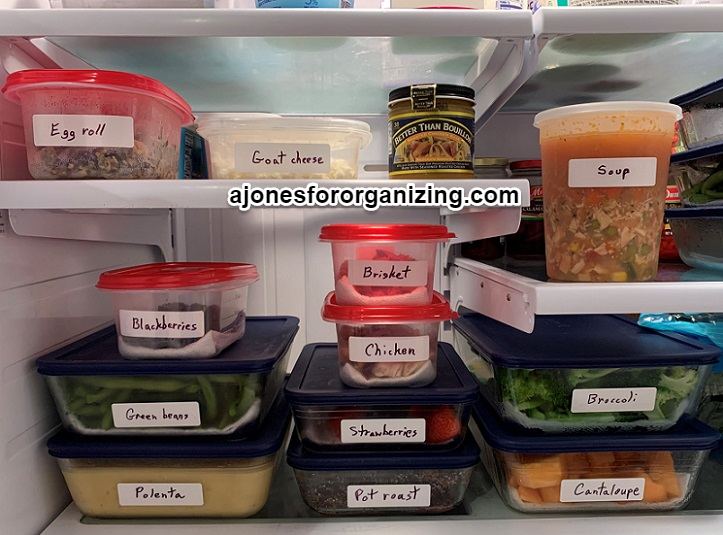
Anticipate the problem, and do something ahead of time to prevent it.
Read on for 7 ways to be more organized by planning ahead. But first, allow me to take a hilarious non-organizing-related momentary detour.
The Estates at Wuuhht
Here is an amusing example of not planning ahead, and not anticipating What Will Happen Next? See how this subdivision sign for The Estates at Westlake got covered by bushes, over time, so that it says “The Estates at Wuuhht?” Plants grow. The people who designed the lettering of the sign too low to the ground, and the people who planted tiny baby shrubs there, didn’t plan ahead, for what will happen next. You can do better.
Do try this at home
Now, back to being organized. Some of these planning ahead tips are going to involve developing a new habit. A few will involve making your technology work for you. Several will involve this professional organizer’s favorite tool, labeling, because labeling is the world’s easiest life hack.
Let’s think calmly about some of the little problems in your daily life that drive you crazy, that could be avoided by planning ahead for your “future self.”
1. Where ARE the #&%*@! scissors?
Do you have more than one pair of scissors in your house? Yes? So, when you are wrapping presents, do you have scissors with your gift wrap supplies? If you said yes, excellent! You anticipated needing scissors there. (If not, go take a pair there now. I’ll be here when you get back.) You can take it a step further, and label them.
You can anticipate that scissors will wander away (of course they will! have you MET scissors?)
Label multiple items with the specific room where they should live: First, anticipate the problem: you are going to need scissors in certain locations in your home. Label those scissors to tell your “future self” where they belong. You can write on them with a marker, or color-code them with ribbon to match the color of a specific room. Then later, when those scissors wander away to a different room (of course they will wander away! have you MET scissors?), you know exactly where to take them. Labeling makes it much easier to put things back in their designated home.
2. Did I forget to bring the #&%*@! reusable shopping bags, AGAIN?
Do you sometimes end up at the grocery store without your reusable tote bags? You are not alone. This is a very common problem! I have many clients who struggle with storing and managing their ever-growing piles of reusable bags. There are two things you can anticipate about your reusable bags:
- if they are stashed away in a cabinet or closet in your house, or in the garage, you won’t have them with you when you drive to the grocery store, and,
- if you have too many places where those bags are stored, they will multiply like rabbits and you will lose track of just exactly how many you have
I used to struggle with this, too. Then I realized that I can anticipate this problem. I know that I won’t remember to gather up the bags before I get in my car to leave the house. So . . . I trained myself to put the bags back in my car, right away, after unloading groceries.
I can anticipate that I will forget to gather my shopping bags before getting in the car (of course I’ll forget! have you MET me?)
Develop a new habit: Every time (every. time.) you finish unpacking groceries, do one more step. Take the empty reusable bags back to the car. Don’t wait. Do it right then. Do it every time, over and over again, till it becomes a habit. That way, you will never find yourself pulling into the grocery store parking lot without your shopping bags again. And, there is something about seeing how many you actually have, all in one place, that makes it easier to realize that you can discard the extra ones you don’t use. (I love these Reisenthel bags, sometimes called carrybags or market baskets, that carry a LOT of heavy items and fold down flat.)
3. What WAS the name of that plumbing company?
Are you like me, where you can never remember the business names of service providers? Sure, I have them all in my Contacts in my phone. They are all automatically alphabetized. But that doesn’t help me AT ALL. Why? Because if I can’t remember the actual company name, I also won’t know which letter the name starts with. Right?!? That plumber or electrician is lost in my alphabetized ocean of names. I can anticipate that I will never find them. Categories to the rescue!
I can anticipate that, in my ocean of perfectly alphabetized phone Contacts, I won’t remember which letter that elusive business name starts with
Create categories for services in your smartphone Contacts list: First, anticipate the problem: I won’t remember the specific company name, only that I need a category of service. So, I solved this problem by grouping related services. All plumbing companies in my Contacts list start with the word “Plumbers.” All car repair shops and inspection stations start with the word “Auto.” Same for house cleaners, computer repair people, etc. That way, no matter what the business name is, I can find them instantly. It’s kind of like creating categories in Rolodexes. (What? Well, see, Rolodexes were these twirly paper things . . . never mind.)
Make your technology work FOR you, the way YOU want
4. What does this random cord GO with?
Do you have unidentifiable cords and cables around the house? Perhaps the devices they belonged to are long gone? If I had a time machine, I would do one important and world-altering thing: I would go back and make all electronics manufacturers label their cords with the name of the accompanying device. Right?!? You can anticipate that cords will get separated from their gizmos and gadgets, and they will not have any identifying info on them.
You can anticipate that the cord will get separated from its device (of course it will! have you MET cords?)
Label that cord: No, you don’t have to go dig out all your old cords and label them. (Even *I* haven’t done that, and I’m a professional organizer.) BUT – starting now, whenever you buy a new device, slap a label on the cord. Your future brain LOVES it when you do this kind of thing. To make an adhesive label like this, I typed the device name twice, with lots of empty spaces in the middle. That way, you can wrap the middle empty part of the label around the cord, and the device name on each side will be readable.
5. Just how old IS this cold medicine?
Who knows, right? They often make the expiration dates very difficult to find. Anticipate your future self, wanting some effective cold medicine RIGHT NOW and not being sure how many years that package has been sitting in the medicine cabinet.
You can anticipate not knowing how many years that cold medicine has been in your medicine cabinet
Write expiration dates on medicine and food packages. Go hunt for the expiration date on your packages (pack a sandwich; this part might take awhile) and write the date on the front. Your future stuffy head will thank you.
6. WHERE does all this stuff in their pockets come from?
When doing laundry, do you check the pockets first and empty them? It only takes one crayon mishap to learn to do this forever. What do you do with all that random stuff, like coins, paper clips, etc.? You can anticipate that you will need a spot to put these things. Make it easy on yourself and have a small bin nearby, as a dumping place for those treasures.
You can anticipate finding coins and other treasure in pants pockets when doing laundry
Create a label for your bins, for dumping things: Woven bins are sometimes hard to label. Here, I used Elfa drawer label holders. They have little hooks on the back, that fit over the top edge of the bin.
7. When DOES that free trial expire?
Have you ever signed up for a free trial for something, and then didn’t cancel it before the 30 days was up? And they charged your credit card for it, even though you didn’t want to continue with the product? Yeah, me neither. (Not true; I have totally done this before.) You can anticipate that you might forget to cancel in time.
You can anticipate that you might forget all kinds of things that will happen later: reminders allow you to be the normal, forgetful person that you are
Set a Reminder for yourself: I schedule reminders for myself for everything: taking the trash out to the curb the night before pickup day, getting my car inspected, replacing my air-conditioning filter, etc. Reminders let you be the normal, forgetful person that you naturally are. Your smartphone or calendar probably has a Reminders function. If you use Evernote, you can make cancelling a free trial even easier.
Use Evernote to send you that registration email for one-step cancelling: If you use Evernote Premium, you can send the free trial registration email directly into Evernote. Then, set a dated Reminder on that note to pop up before the free trial ends. On that day, you will get an email from Evernote that says, “Here’s what’s due today.” One click, and you have the registration email containing the cancellation button right there. No need to search in your mountain of emails for that one important action to take. (Thanks to Janine Adams of Peace Of Mind Organizing for this excellent Evernote idea.)
Now it’s your turn! How many of these did you already know? Can you think of other ways that planning ahead can help you be more organized?
Can I help you with planning ahead? Contact me!


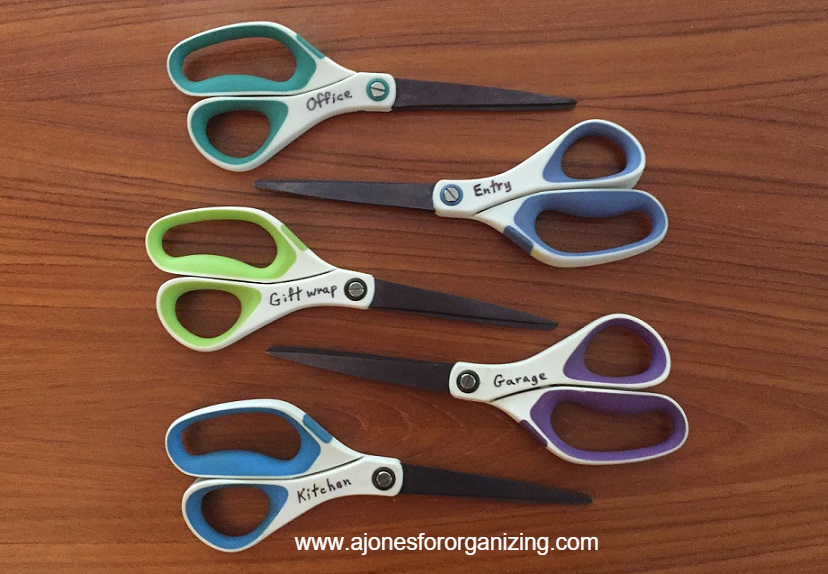

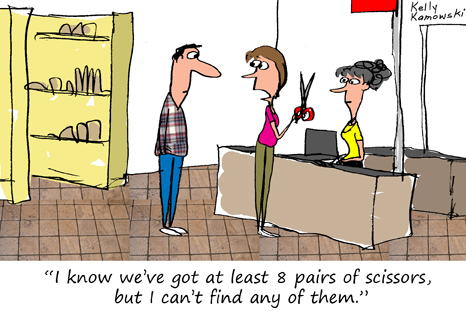
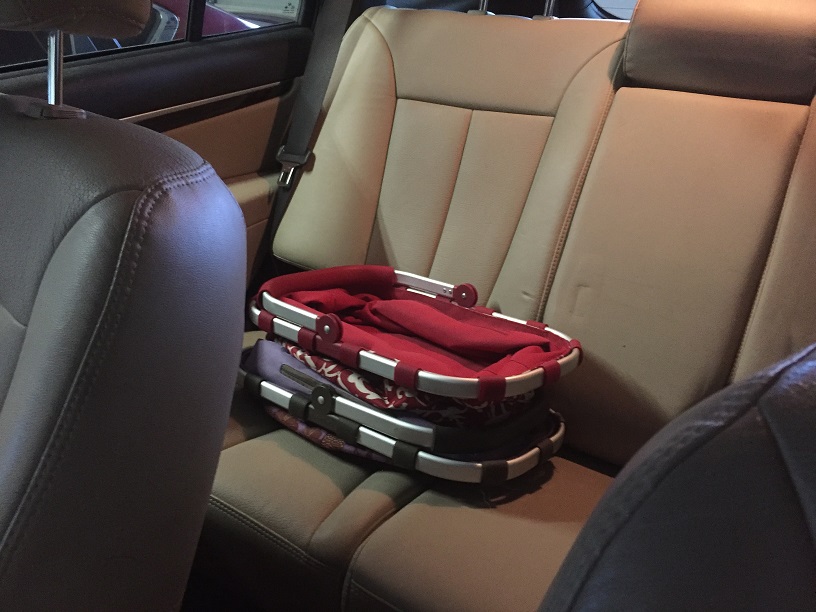
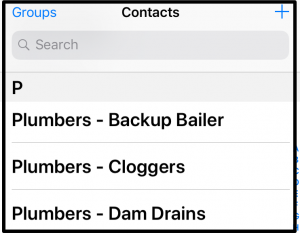
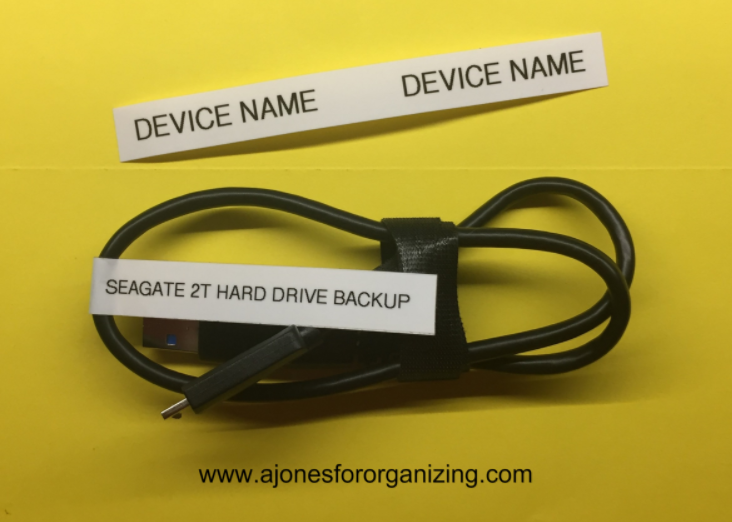
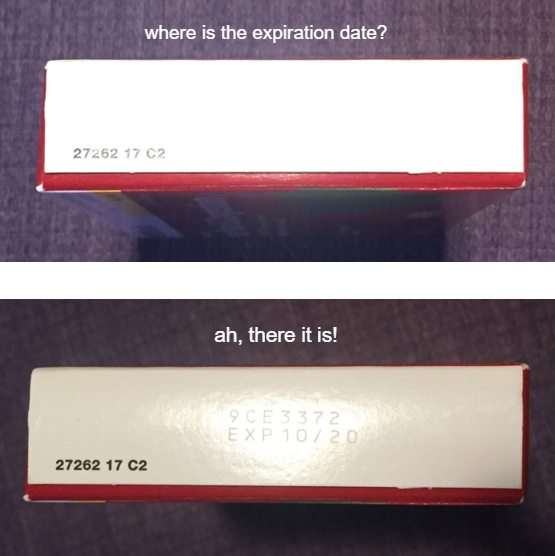
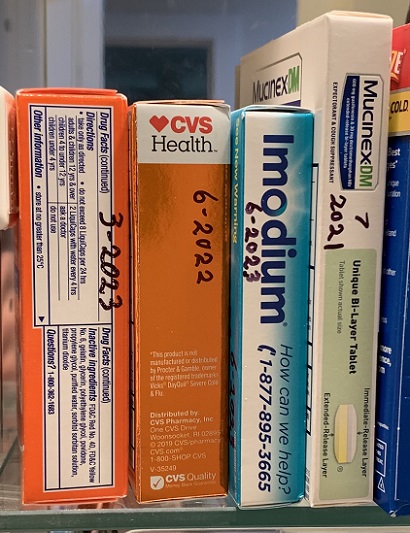
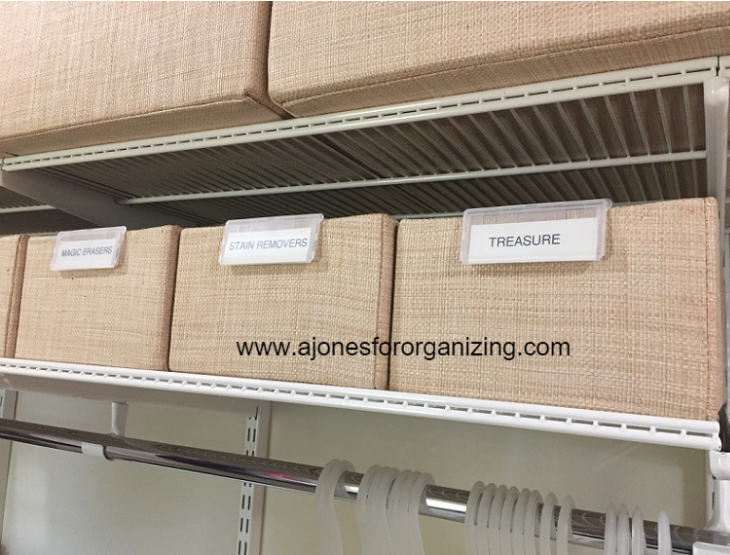

All of the are great. 😆 for Estates at Wuuhht.
I crack myself up, I do!
Great suggestions! One forward-looking thing that I like to do is when I freeze a portion of a bottled/canned liquid for later use (when I don’t need an entire can in a recipe, for instance), I put a note on the next full container in the pantry so I don’t open it needlessly. For example, I’ll write on the lid of a can of chicken broth, “1 cup in freezer.”
That’s a great idea, Heidi! I like that a lot, as a way to make sure that you rotate through the freezer supplies. It’s a good way to communicate to your “future” self, because you likely won’t remember that detail later. I used to attempt to keep a running list of everything in my freezer. I’ve tried apps on my phone, and a bulletin board inside my pantry, but I just didn’t keep up with it. I finally decided that it was more fun to excavate the freezer once in awhile and make exciting discoveries, instead of being intermittent with keeping an inventory list.
I like your practical tips and examples for planning ahead to be more prepared and organized. The scissor idea reminds me of how I handle my eyeglasses. While I don’t label them (with the location that they reside in,) I do have pairs everywhere I need them. They get returned to their “home” when I’m done, but it also makes it so easy to see stuff whereever I am. Pairs are kept in my bag, on my desk, in the bathrooms, on my bedside table, and in the car.
Yes, Linda! Eyeglasses are a great example of things kept in multiple rooms where you need them. But I would have to color-code them or something, because I would invariably carry them somewhere else and forget where they permanently live.
Love all your advice!!!!
Thanks John!!
When I first spotted the photo at the top of your post, I wondered why you’d taken a picture of it when we couldn’t even read the text – then I realized, that was the point! It actually reminded me of something in my neighborhood. A couple of years ago they installed community mailboxes and one of the homeowners who ended up with one on their property planted tall shrubs all around them, presumably so they don’t have to see the back of the mailboxes when they look out the window. Clever I suppose, but they planted them so close to the mailboxes – and to each other – than I know there are going to be problems down the road.
Ha, I’d actually like to see a picture of those mailboxes with the plants around them, Janet! I love collecting potential usability problems like that.
Oh my goodness, the free trial thing is so easy to fall prey to. You really do need to note when you are going to start being charged. Seems like so many products have moved to a subscription model, and that can add up to big money in no time!
Yes, it’s so easy to let that future event slip out of your awareness!
I enjoyed this article very much. I would suggest, however, that having a small “tools” caddy–with scissors inside–would preclude the need to buy five pairs of scissors that then need to be labeled. I avoid having multiple copies of tools by knowing where those tools are stored, and (trying!) to make putting the tools away the last step of any job.
Good point, Bird Girl! Most people I know already have multiple pairs of things like scissors, that they have accumulated over time. But if they don’t, yes, a tool caddy is very useful!